What is raised bed gardening all about?
Simply put, raised bed gardening involves a portion of the garden or yard raised above the rest and a perfect soil mix recipe for raised beds. The raised portion is surrounded by an enclosure made of wood, stone or other material to keep the soil inside the structure. You might have already seen these many variations of the raised bed garden.
Whether in the back or front yards, raised bed gardening can be used for growing vegetables, herbs, spices, or flowers, to name a few. Raised bed gardens are more stable if they assume a geometrical shape with straight edges.
Raised bed gardens can take various shapes, including circular ones, which might require more skills and specialized tools to construct. Raised beds protect the soil from erosion and reduce water wastage. It also protects the organisms such as worms which boost the health of the soil.
Ingredients for the perfect soil mix recipe
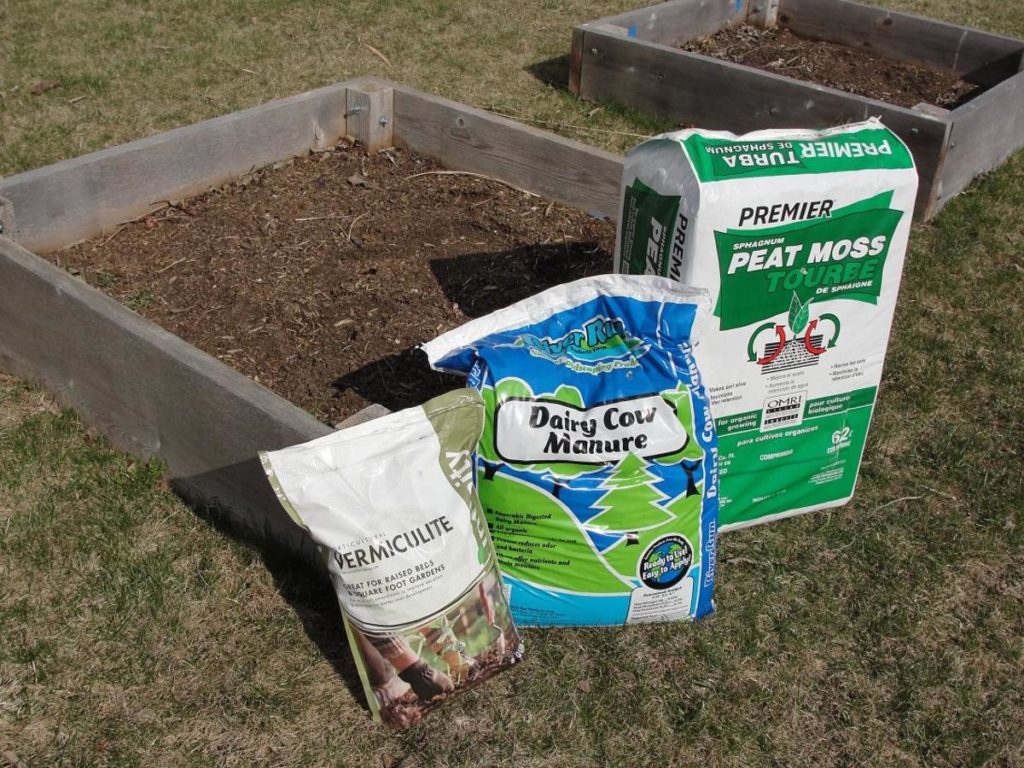
All-Purpose Fertilizer
All-purpose fertilizers like Dr Earth Premium Gold are made of 100% natural substances, eliminating the demand for synthetic additives. Plus, it is non-GM and contains zero sewage.
All-purpose fertilizer is a customized blend that is safe for pets and people alike and is great for any plant in your garden because it includes beneficial soil bacteria. Harmful bacteria include blight, wilt, and septoria leaf spot. It rapidly discharges balanced plant nutrition but continues feeding the plants for several months. It naturally supports healthy development and larger, more profuse crops such as veggies, flowers, potted plants, and all types of shrubs and trees.
Apply 2-4 pounds of All-Purpose Fertilizer as part of the soil mix recipe for raised bed. Dr Earth Premium Gold All Purpose Fertilizer is OMRI listed and registered for usage in organic cultivation.
For use in gardens while bed preparation, mix 1-1/3 cups for every 10 sq ft of growing area, or 6 cups for every 50 ft of planting row in your garden, and work the soil uniformly to a depth of 6-12 inches and water it thoroughly and consistently. You can read my article about tomato plant maintenance for beginners.
Vermicompost
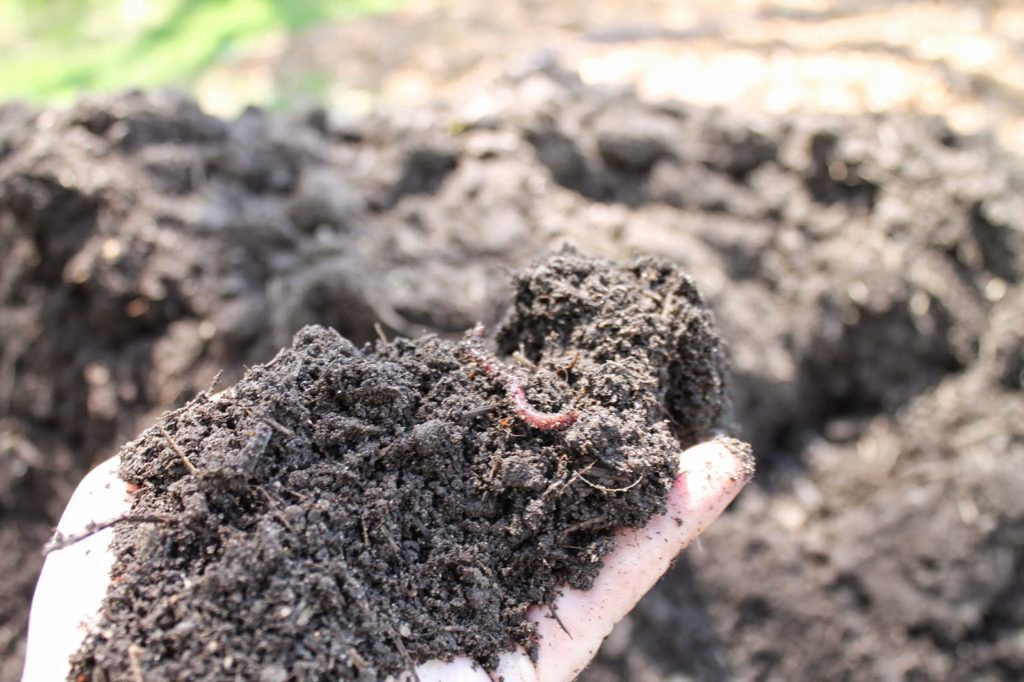
Use about four bags of Worm Castings, giving you 1 cf x 4 = 4 cf or 0.11 cubic meters. Vermicompost or Worm Castings are the rich digested soil that red wiggler worms leave behind. They contain no chemicals. Helps plants develop and fight off infections. It has as many as 10,000 distinct microorganisms, which help plants flourish.
They are odour-free as well. You can cultivate them indoors or outdoors. Nutrients are in a form that can be used fundamentally by plants. It boosts the quality of the plants, vegetables, and fruits growing. It has a neutral pH, which means it can be used for all plants.
Laboratory studies suggest that even 10 percent vermicompost in potting mix boosts germination rates, plant growth, appearance, and fruiting. It also contains natural growth hormones that deliver a significant kick to plants. Evenly apply 5-10 pounds per 100 square feet and work into the soil.
Read more: Adding Worms In Your Raised Bed Garden
Black Gold Peat Moss
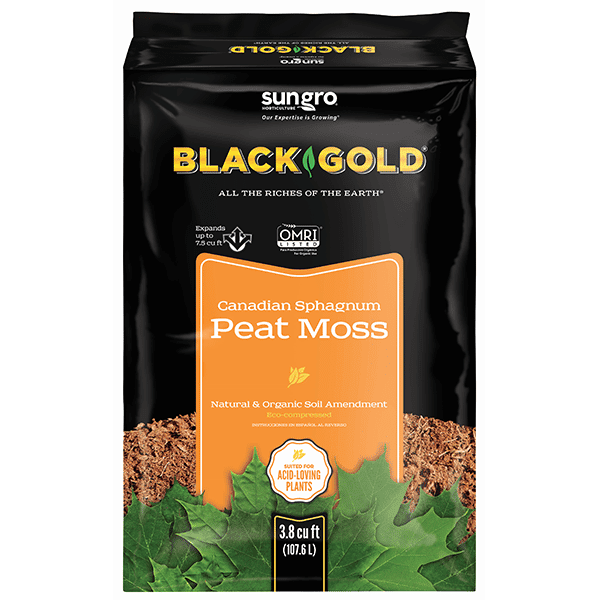
5 bags to be exact. 2.2 cf x 5 = 11 cf or 0.31 cubic metres. Black Gold Peat Moss is an organic soil conditioner found naturally. It is rich in nutrients for the plant and soil. Plus, its unique cell structure maintains moisture around plant roots and improves air circulation giving you a perfect growing environment.
Black Gold Peat Moss is spongy and can preserve water. You probably want to mix freely with any soil to increase water retention, soil aeration, and stimulate root development. Buy some here: black gold peat moss.
Organic or Pasture-Fed Chicken Manure
Organic or Pasture-Fed Chicken Manure Fertilizer delivers a well-balanced source of nutrients to plants. It can be used for mulching and moisture retention. Apply 3 bags of Organic Chicken Manure (1 cf x 3 = 3 cf or 0.084 cubic meters), providing almost 5 times more plant food value than steer manure. It has a slow-timed release for more effect.
Organic chicken manure won’t burn the crops and is compliant with the USDA’s National Organic Program. It has been approved for organic use. It is weed and dirt free. Ground for homogenous texture.
Teufel’s Organic Compost

Or any other organic compost. About 3 bags is enough( 3 cf x 3 = 9 cf or 0.254 cubic meters). Organic compost provides an active source of organic matter, humus, and other critical soil builders to feed the plants.
The good thing about compost is all the soil damaging sludge or biosolids found in commercial products have been broken down or are absent. You want to apply it uniformly wherever organic matter is needed. Each bag will cover a 3′ x 6′ area 2″ deep.
Therm-O-Rock Organic Vermiculite
2 bag Therm-O-Rock Organic Vermiculite, 2cf x 2= 4 cf. Therm-O-Rock Organic Horticultural Vermiculite is certified Asbestos Free and when mixed with peat, bark, or compost, it promotes moisture retention and wonderful aeration.
Another one of its qualities is that it won’t rot and it is of #3 medium quality. It helps to sustain the robust root structure. It also kindles quick root growth. A natural mineral that contains more water than perlite or pumice and when heated, it expands. Click here to Buy
Azomite
3-6 pounds Azomite. Down to Earth Azomite is manufactured from natural volcanic mineral deposits which comprise more than 70 minerals. It has been established that it boosts crop productivity and pace of growth.
Another benefit involves the simple and clean application; the solution is almost dust-free. The availability is in 6lb. box. Down To Earth Azomite offers a vast array of minerals and trace elements that can enable a deep renewal of impoverished garden soils.
It can not only be administered directly but also in a blend with other soil additives. Broadcast 3-6 pounds per 1,000 square feet in your grass and consistently water it well.
Dr. Earth Kelp Meal
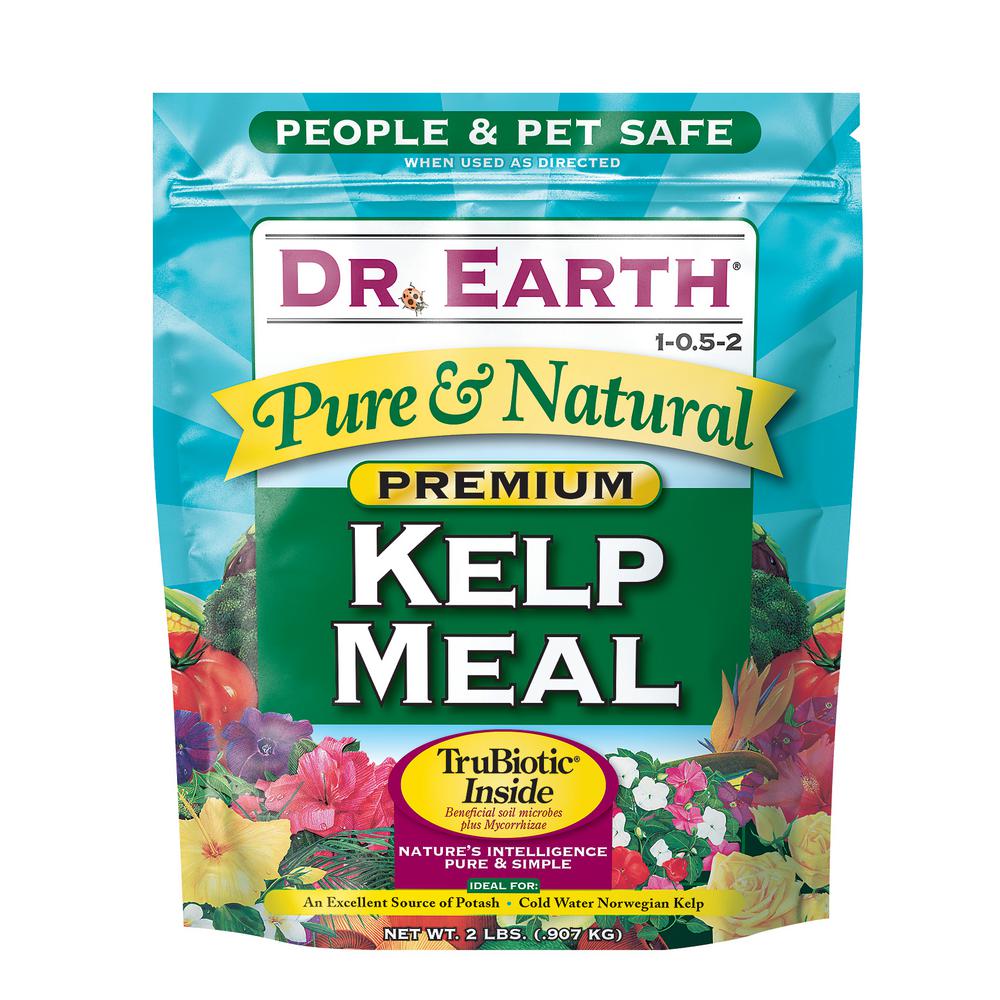
Dr. Earth Kelp Meal is such a great soil addition for vegetable gardens, roses, trees and shrubs, and tropical plants. Amongst many aspects the most notable is that it is a robust all-rounder component that supports all plants, it also encourages health in all planting applications.
Add 1-2 pounds Kelp Meal. Dr. Earth Kelp Meal is derived from cold water Norwegian seaweed implanted with seven strains of helpful soil bacteria. It is a larger raw resource that truly revitalizes and promotes the biological life of your earth.
Not only is it a wonderful source of potash but it contains minerals, vitamins, hormones, growth regulators, and enzymes. For container plants, it is advisable that you apply 1/4 cup per 1/2 cubic foot of soil and combine exhaustively for best effects. Buy some here Down to earth alfa alfa meal
Oyster Shell Flour
3-6 pounds Oyster Shell Flour. Add Down To Earth Oyster Shell Flour for your total plant health and soil conditioning. The range of particle sizes in this crushed mix guarantees rapid and long-term discharge of calcium which produces stronger plants that can survive disease and pest assaults.
It is OMRI listed and registered for consumption in organic farming. Not only does it encourage robust root growth and assimilation of all nutrients but also progresses and improves soil texture and aeration. It benefits by Raising pH in acidic soils.
For usage in lawns, distribute 1/4 to 1/2 cup per 10 square feet in your lawn depending on soil analysis and water frequently.
Ready the soil for the raised bed garden
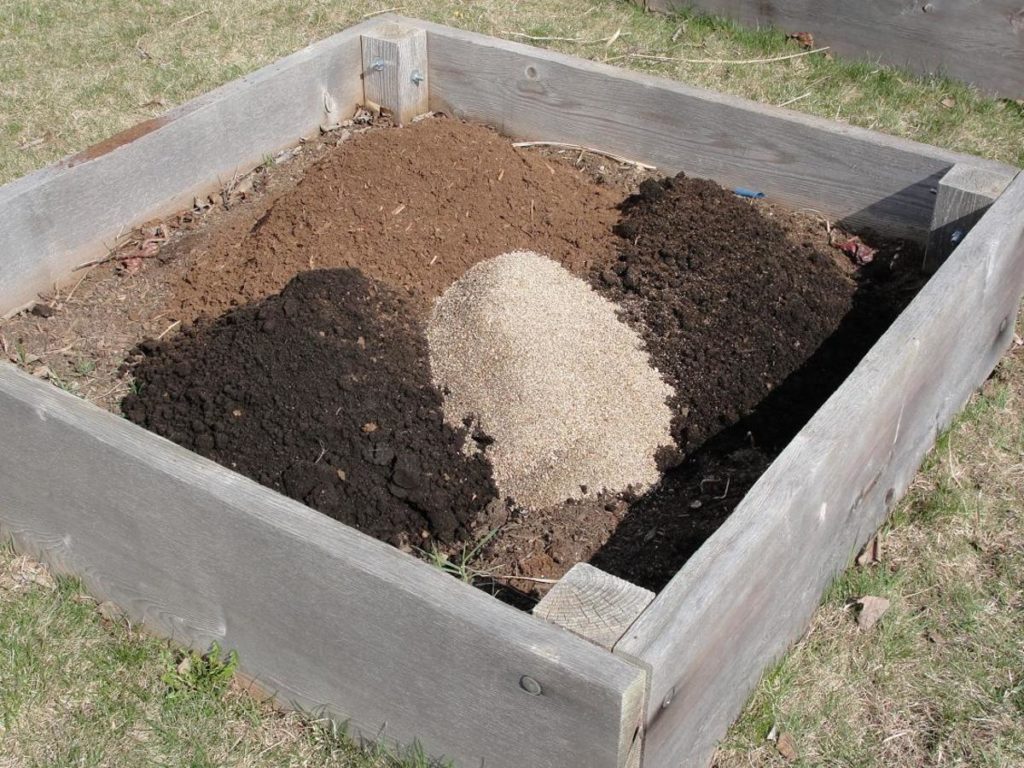
It can get rather tricky for first-timers. So we try to break down the perfect soil mix formula into easy-to-follow steps to guide you. If you achieve a well-balanced bed mix, it will make the yield from row crops look like child’s play. And because the soil in raised beds warms up faster, you will get a head-start in the season for growth.
However, this is tough to achieve without readying the raised garden bed and the soil. First, mix some come compost into the raised bed. You can make your own but you might need some experience to knock that out of the park. So the best option is to buy some from the store or a trusted dealer in your area.
Mix them all together
In case you don’t know what composting is, it is the name given to the decomposed organic matter. It is recycled or used to make the perfect soil mix recipe for gardening. It has some odor but it shouldn’t stink. Stinking means it is not ready for use just yet and may harm your crops.
Before buying your compost, check sure it has been entirely done. The same goes if you wish to use any manure. Make sure that the manure has been decomposed and it isn’t hot anymore. Any leftovers in the manure can limit the fertility of the soil.
Add in a little mix to the compost, like peat, pumice, or vermiculite. This assists in the drainage of the bed, especially important for root vegetables. The greatest approach to make sure that your compost is ready is to spread it in the fall.
And the best time to start is…
You can leave it on the surface to finish in the cycles of winter. It will be ready by then. If you don’t want to spread the compost in the fall, no stress. You can utilize it as you go.
You can strike bales and straws in the beds and find them with good results in the spring. The bale accomplishes two things for you; it stops weeds from developing and it conditions the soil beneath it.
If you are putting up new beds in the spring, why don’t you put your initial planting in the straw bales? Straw bale gardening has really gotten popular in recent times. Some gardeners have even gone to the extent of skipping boxes and growing in the bale!
Summary
Good and healthy organic soil is the most crucial thing for healthy, nutritious plants. It is loaded with air that plant roots need, it is fluffy and loose as well. It offers appropriate nutrients and minerals for plants to thrive and generate a wonderful harvest. Filling your bed’s dirt is a terrific chance to receive high-quality soil.
Read More About Tomatoes:
Adding Worms In Your Raised Bed Garden
How many tomatoes fit a 4×4 raised bed garden
How often should you water tomato plants?
How Deep To Plant Garlic In Spring Or The Fall
Who else do you think would benefit from this. Share it with them or family or friends.


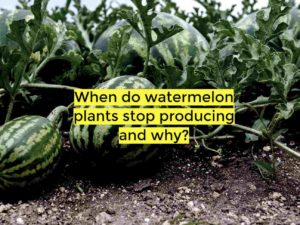
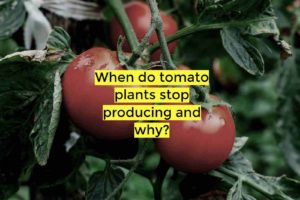

[…] Grass Clippings are quite popular. They not only prevent weeds but are light and do not hinder root growth for weak plants. They will also amend the garden bed soil. […]
[…] Soil For Raised Bed: Raised Bed Gardening Soil Mix Recipe […]
[…] planting garlic, you can use a raised bed or pots. The method you use impacts when it’s ready to harvest. For garden beds, preparation is key and […]
[…] Soil For Raised Beds: Perfect Soil Mix Recipe For Raised Bed Gardening […]
[…] You might also like: Perfect Soil Mix Recipe For Raised Bed Gardening […]
[…] A potting soil of superior quality will be beneficial to the growth of cucumbers in containers. This specialized soil is superior to conventional garden soil in its ability to both absorb and release moisture. […]
[…] Perfect Soil Mix Recipe For Raised Bed Gardening […]